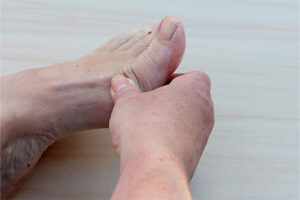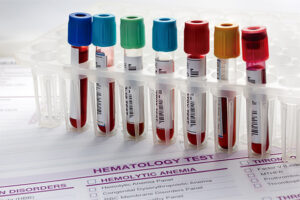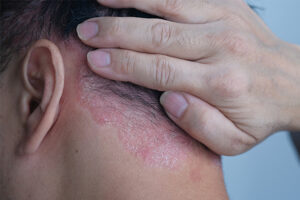Dermatology
Plaque Psoriasis
Psoriasis Care and the Potential of Biosimilars
Overview
Biosimilars are available for a variety of inflammatory diseases, promising to lower costs substantially in aligned payor systems. Our featured experts express confidence in the biosimilar approval pathway, touching on their experiences with infliximab biosimilars.
How do you view the potential of biosimilars, and what is the current role of biosimilars in the treatment of psoriasis?
Bruce E. Strober, MD, PhD
|
|
“Biosimilars are a welcome addition to the treatment armamentarium for psoriasis and for all other inflammatory diseases for which they are available.”
Biosimilars are a welcome addition to the treatment armamentarium for psoriasis and for all other inflammatory diseases for which they are available. There is a standard that must be met by biosimilar drugs to be defined as being interchangeable with originator drugs. The standards should be appropriate such that we should feel confident that a biosimilar version of an originator drug is a close or interchangeable version. I have looked into this matter closely, and I think that the regulatory approval process for biosimilars is sufficiently rigorous.
Most studies of biosimilars show that they are roughly equivalent and noninferior to the originator in all aspects, including in efficacy, safety, and immunogenicity. In the same vein, if a patient develops immunogenicity to the originator, it is entirely likely that the immunogenicity is going to carry over if a switch is made to the biosimilar. There are much more similarities than differences between originators and biosimilars.
In most instances, a switch from an originator drug to a biosimilar drug is mandated by the insurance company. The cost-savings potential of biosimilars is significant. In European countries, the savings are sizeable, and this increases access. Even if this turns out to be only a 20% reduction, for example, that is still a lot of money, and it is a welcome development.
In dermatology in the United States, infliximab biosimilars are probably the most relevant right now (ie, a dermatologist who uses infliximab likely has patients on a biosimilar). There are currently several infliximab biosimilars that are approved by the US Food and Drug Administration (FDA). I have some patients on infliximab biosimilars, and I personally have not observed any problems with them.
Steven R. Feldman, MD, PhD
|
|
“The bottom line is that I think that we can be confident in biosimilars because the binding of the target and the pharmacokinetics are the same as the originators, and biosimilars have been approved by the FDA based on recent clinical trial data.”
Biologics are complicated large molecules, and, although it is not possible to duplicate these drugs to the point of being absolutely identical, that variability may also exist if you compare different batches of the same originator drug.
Clinicians may worry that the biosimilar is only tested in a single disease state or for a single indication, unlike the originator. However, in some ways, data on biosimilars may be timelier and more relevant than data on originator biologics. That is, when you consider batch-to-batch variability, pivotal trials for an originator biologic were performed on batches from long ago, perhaps more than 15 years ago. Now, all biologics—originators and biosimilars—undergo ongoing monitoring and quality control, but, as far as I know, subsequent batches of the innovator drug are not retested in full-scale clinical trials, for any disease state.
The bottom line is that I think that we can be confident in biosimilars because the binding of the target and the pharmacokinetics are the same as the originators, and biosimilars have been approved by the FDA based on recent clinical trial data. In my view, other sources of variability that apply to both originators and biosimilars (eg, refrigeration of the product, adherence, and duration between injections) are far more likely to cause differences in clinical outcomes than would the minor differences between different batches of an innovator product or between an innovator and its biosimilars.
When a patient who is doing well on infliximab is switched from the originator to a biosimilar by a pharmacist, the National Psoriasis Foundation recommends that the pharmacist notifies both the prescriber and the patient. I take a slightly different stance on this in that there is no such notification every time the company producing the originator switches from 1 batch to another. When patients are switched from infliximab to an infliximab biosimilar, I do not necessarily need to be notified that a switch has occurred. In that regard, my view is that biosimilars and the various batches of originator products are essentially the same.
Boni E. Elewski, MD
|
|
“The potential for differences in efficacy between a biosimilar and an originator biologic is an interesting question. I think that we can be confident in FDA-approved biosimilars.”
These agents are called biosimilars and not bioidenticals because, as previously noted, they are not exactly the same. The potential for differences in efficacy between a biosimilar and an originator biologic is an interesting question. I think that we can be confident in FDA-approved biosimilars.
In fact, it is possible that a biosimilar might have better efficacy in a given patient than the originator. Consider a previous patient of mine with generalized pustular psoriasis, which is distinct from plaque psoriasis. This individual had a very high body mass index and had been receiving infliximab 5 mg/kg for more than 20 years. We switched the patient to a biosimilar because the insurance company mandated it. The psoriasis was not doing well just prior to the switch. I was initially concerned that the biosimilar might not be efficacious, but this patient’s psoriasis actually improved and cleared up after they were started on the biosimilar. Is it possible that the biosimilar was actually a more effective version for this patient than the latest batch of originator infliximab? Had the patient developed antibodies to something in the originator infliximab that was not present in the biosimilar? As Dr Strober noted, one would usually expect immunogenicity to carry over to the biosimilar.
It was a challenge with this patient therapeutically because I did not want to prescribe methotrexate or cyclosporine, owing to concerns related to nonalcoholic fatty liver disease, but the biosimilar cleared up the disease. Incidentally, spesolimab is a monoclonal antibody that inhibits interleukin-36 signaling that has been FDA approved in this setting, but this particular patient did well with the infliximab biosimilar.
References
Bachelez H, Choon S-E, Marrakchi S, et al; Effisayil 1 Trial Investigators. Trial of spesolimab for generalized pustular psoriasis. N Engl J Med. 2021;385(26):2431-2440. doi:10.1056/NEJMoa2111563
Blauvelt A, Leonardi CL, Gaylis N, et al. Treatment with SDZ-ADL, an adalimumab biosimilar, in patients with rheumatoid arthritis, psoriasis, or psoriatic arthritis: results of patient-reported outcome measures from two phase III studies (ADMYRA and ADACCESS). BioDrugs. 2021;35(2):229-238. doi:10.1007/s40259-021-00470-1
Feldman SR, Reznichenko N, Pulka G, et al. Efficacy, safety and immunogenicity of AVT02 versus originator adalimumab in subjects with moderate to severe chronic plaque psoriasis: a multicentre, double-blind, randomised, parallel group, active control, phase III study. BioDrugs. 2021;35(6):735-748. doi:10.1007/s40259-021-00502-w
Heron CE, Ghamrawi RI, Balogh EA, Feldman SR. Immunogenicity of biologic and biosimilar therapies for psoriasis and impact of novel immunoassays for immunogenicity detection. Am J Clin Dermatol. 2021;22(2):221-231. doi:10.1007/s40257-020-00569-1
Loft N, Egeberg A, Kirchheiner Rasmussen M, et al. Outcomes following a mandatory nonmedical switch from adalimumab originator to adalimumab biosimilars in patients with psoriasis. JAMA Dermatol. 2021;157(6):676-683. doi:10.1001/jamadermatol.2021.0221
Menter A, Arenberger P, Balser S, et al. Similar efficacy, safety, and immunogenicity of the biosimilar BI 695501 and adalimumab reference product in patients with moderate-to-severe chronic plaque psoriasis: results from the randomized phase III VOLTAIRE-PSO study. Expert Opin Biol Ther. 2021;21(1):87-96. doi:10.1080/14712598.2021.1851362
National Psoriasis Foundation. Biosimilars. Accessed October 17, 2022. https://www.psoriasis.org/biosimilars
Reynolds KA, Pithadia DJ, Lee EB, Liao W, Wu JJ. Safety and effectiveness of anti-tumor necrosis factor-alpha biosimilar agents in the treatment of psoriasis. Am J Clin Dermatol. 2020;21(4):483-491. doi:10.1007/s40257-020-00507-1
Strand V, Gonçalves J, Hickling TP, Jones HE, Marshall L, Isaacs JD. Immunogenicity of biosimilars for rheumatic diseases, plaque psoriasis, and inflammatory bowel disease: a review from clinical trials and regulatory documents. BioDrugs. 2020;34(1):27-37. doi:10.1007/s40259-019-00394-x













